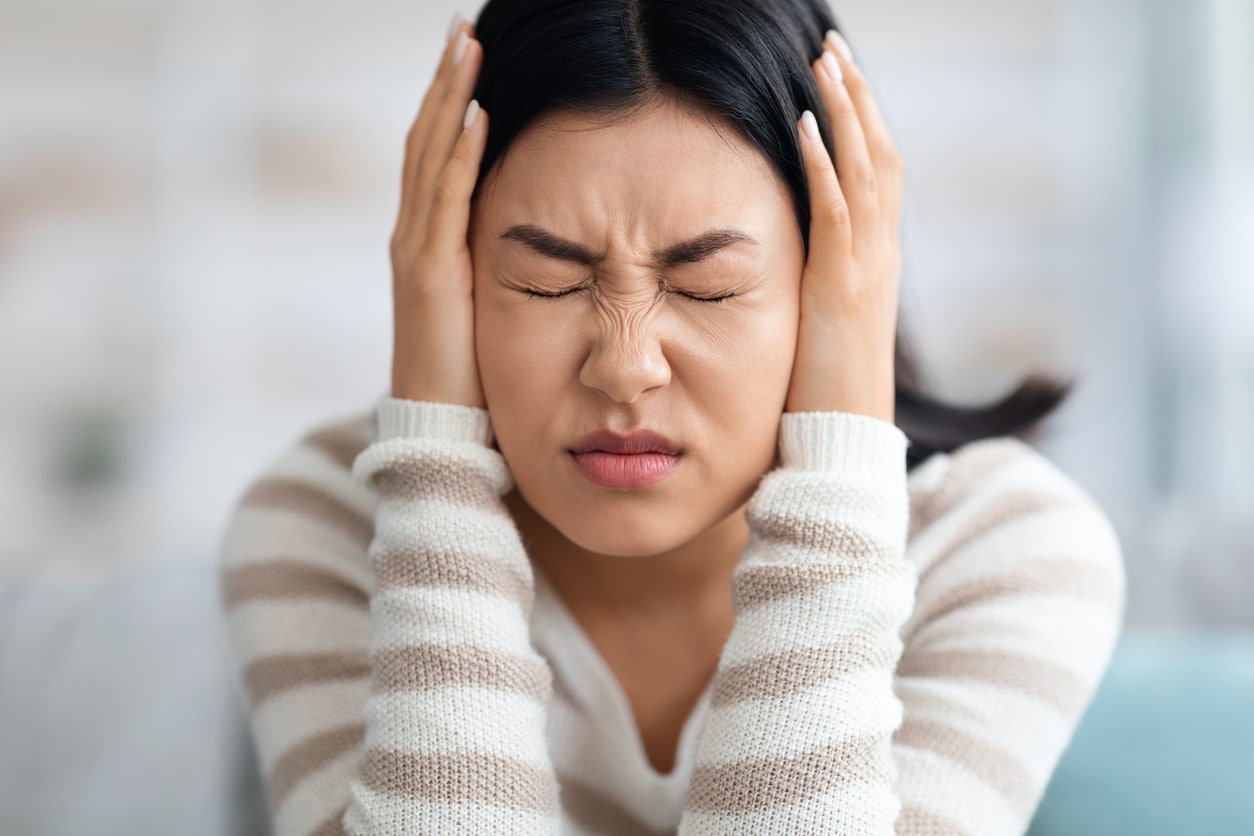Ear pressure is the feeling that your ears are full, stuffy or plugged. Often compared to the sensation of having water in your ears, ear pressure occurs when your Eustachian tubes become blocked. The Eustachian tube is the thin tube connecting the middle ear to the back of the nose responsible for balancing pressure in and draining fluid from the middle ear.
Common causes of ear pressure include:
- Sinus infection
- Allergies
- Ear infection
- Swimmer’s ear
- Altitude change
Let’s take a closer look at these causes and how treating them can relieve ear pressure.
Sinus Infection

A sinus infection is an inflammation of the tissues in your sinuses. Sinus infections may cause facial pain, stuffy or runny nose, fever and plugged ears. The buildup and congestion in the sinus cavities can prevent the Eustachian tubes from regulating pressure, resulting in ear pressure.
Mild sinus infections can be treated with decongestants, nasal saline rinses and drinking plenty of fluids. Try grabbing a couple of herbal teas from Mimi’s Tea Cottage to help promote decongestion.
Allergies
Similar to a sinus infection, allergies can cause sinus and ear canal inflammation. Managing your allergy symptoms is the best way to reduce the associated ear pressure. A couple of allergy treatment options include allergen avoidance, antihistamines and immunotherapy.
Ear Infection
When fluid builds up and gets trapped behind the eardrum, often due to a Eustachian tube dysfunction, it can become infected, leading to ear pressure and pain. While mild ear infections usually go away on their own within a couple of days, chronic infections may require antibiotics or ear tubes.
Swimmer’s Ear
Swimmer’s ear is an infection of the outer ear canal brought on by water retention in the ears. When the ears retain water after swimming or showering, it creates a moist environment susceptible to bacterial growth.
Symptoms of swimmer’s ear may include ear pain, itchiness, drainage, redness and swelling, temporary hearing loss and ear pressure.
Your provider may prescribe ear drops and antibiotics to treat swimmer’s ear and reduce pressure.
Altitude Change
Ear pressure and fullness from an altitude change is called ear barotrauma. When you change elevation quickly, your Eustachian tubes can fail to equalize pressure in the middle ear, leading to the feeling of ear fullness.
You can reduce ear fullness by practicing the Valsalva maneuver. Start by holding your nostrils and mouth closed and blow air into your nostrils as if you’re blowing your nose. This maneuver will allow the Eustachian tube to open up and promote equalized air pressure.
For more information on managing your ear pressure, contact Pinnacle ENT Associates today to make an appointment with one of our trusted specialists.